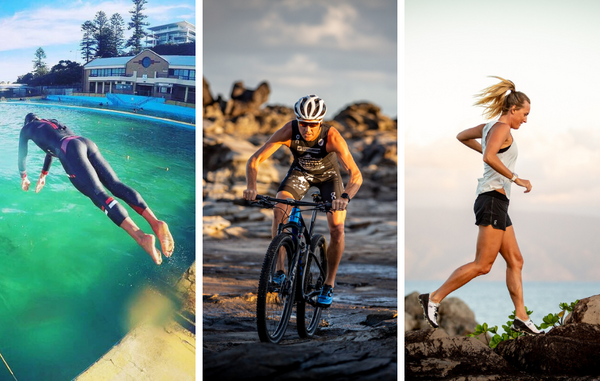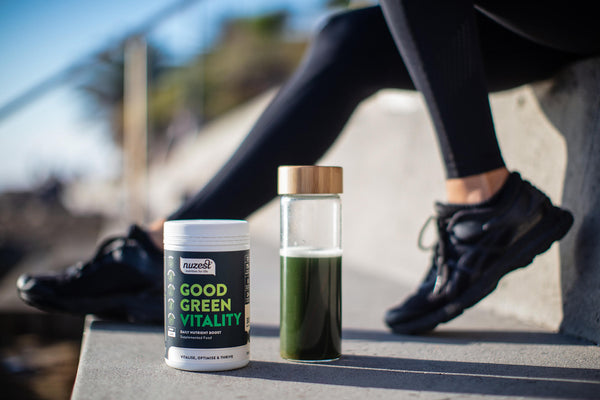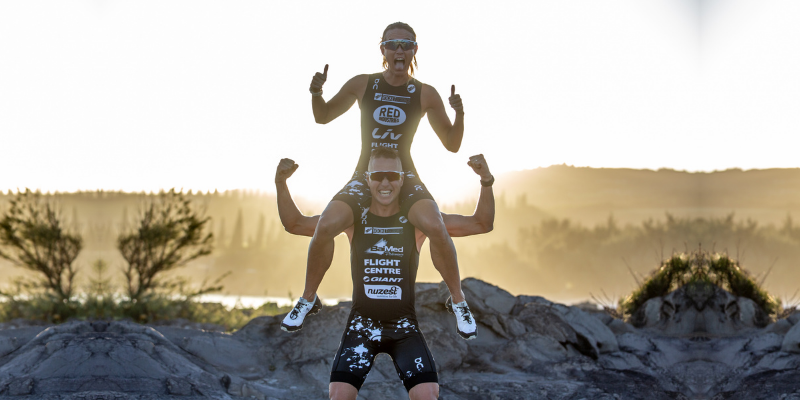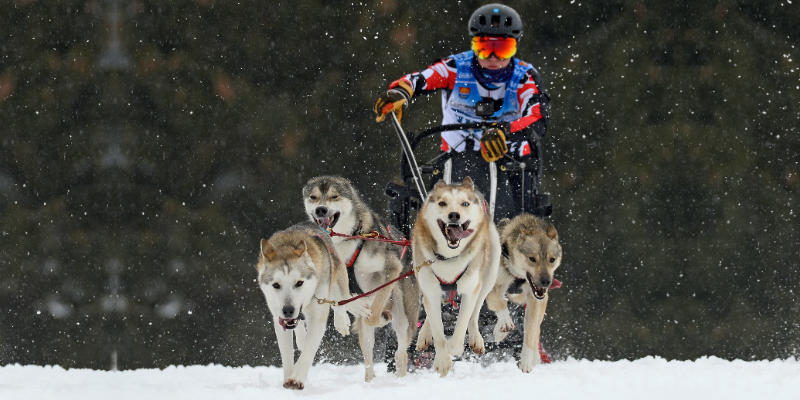The 29th of March will see triathlon events reopening across the UK according to British Triathlon. A popular sport for people of all ages, Triathlon often appeals to those on the lookout for a new challenge. It can, however, be a tricky sport to train for, as you balance not one but three disciplines - swimming, cycling and running.
So how do you balance training for each, without overdoing it?

Ben Allen and Jacqui Slack know a thing or two about triathlon training, with over a decades worth of experience competing in on and off-road triathlons. The duo have experienced their fair share of niggles, Jacqui explains:
“It can be super hard to balance three sports. We try to be consistent across all three and also spend some extra time to practice skills and race scenarios in the off season. As a more mature athlete we aim to do quality training over quantity.”
BEN & JACQUI SHARE THEIR TOP 9 TIPS TO KEEP YOUR TRAINING INJURY FREE:

1. Stretching and activation routine
“We both have a very good and consistent stretching routine, which also involves muscle activation before each training session. We strongly believe both stretching and activation can help reduce the risk of injury and also help your body respond better to training.

2. A structured gym training programme
“Building up strength alongside training for the three elements of triathlon is important, and why we would suggest having a gym training programme. If this programme is structured and fits in with your other training elements, it will ensure you are not over training, whilst at the same time building strength, which can help prevent injuries.

3. Recovery
“As mature athletes, recovery is the most important part of our training schedule. We have a consistent recovery routine involving rollers, compression, massage, physiotherapy and NuroKor bioelectrical therapy. We find that if we get a niggle or a sore spot before or after training NuroKor certainly helps keep any full blown injuries away.

4. Consistency
“Training isn’t about setting PB’s every day, it’s about backing up good solid work, day in and day out. If you go all out in every training session – whether that’s running, cycling, swimming or strength training you won’t see training benefits and you could easily get injured. It’s about being consistent and following a sensible training programme which works for you.

5. NuroKor bioelectrical therapy
“Before and after competition, training, workouts and other fitness activities, we would suggest using NuroKor. It helps warm up and activate muscles and then helps speed up recovery, reducing the likelihood of injuries. We use NuroKor mitouch between sessions or after exertion, it improves our circulation and also helps us to reduce the impact of delayed onset muscle soreness.
"NuroKor is really easy to use when travelling. We use our devices on planes, in hotels and at home as they are easy to use and provide instant relief.

6. Good nutrition
“Having good nutrition is vital for any triathlete. While race day nutrition is important, it’s what you eat outside of events that generally makes the biggest difference in health and performance. By focusing on a healthy, balanced diet, you can help your body train effectively and recover well. We both use products from Nuzest, which alongside a balanced diet offer additional plant based nutrition to keep us healthy.

7. Sleep
“You will be pleased to know that sleep is also an important part of a professional or an amateur triathlete’s life. If you don’t get enough sleep it will affect both your training and performance, potentially increasing the likelihood of getting injured.

8. Training and life balance
“It is important to invest time away from the sport and your training, finding a healthy balance between triathlon and normal life. If you don’t strike a good balance you are likely to over train which can lead to injuries.

9. Talk to the experts
“If you’re considering off-road triathlon, it is important to get in touch with others who have done the race previously. Ask them what the course is like and advice on how you can best prepare for that particular terrain. People are super friendly in triathlon and happy to help. Flick me an email. I'm happy to have a chat or a skype call.

---
Ben Allen is a professional triathlete with over 10 years of racing experience and numerous medals and titles under his belt, including World Tour Off-Road Triathlon Champion. He competes on both the Oceania/Asia and European circuits along with his wife Jacqui Slack.
Jacqui Slack was formerly a full-time firefighter in the UK but became a professional triathlete over five years ago. She now competes on the world circuit, primarily in off-road triathlons, travelling to races with her husband Ben Allen.
Visit Ben and Jacqui’s website here and follow them both on Instagram @Bennyallen and @jacqui220tri



